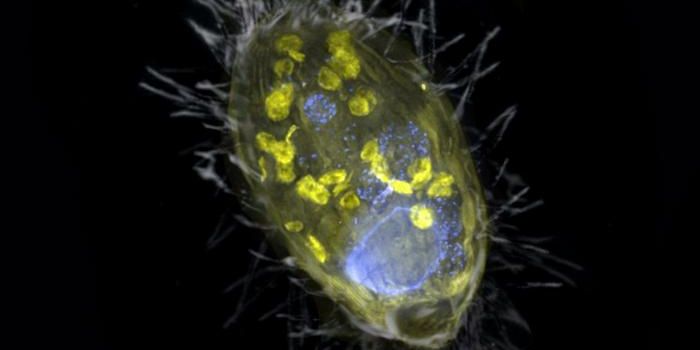Oxymel - A Honey & Vinegar Mix Has Antibacterial Power
A mixture of honey and vinegar is also known as oxymel, and it has been used as a natural remedy since ancient times. Sometimes it contains various fruits or herbs as well. Doctors going back to Hippocrates have recommended it as a treatment for asthma, pain, gastrointestinal disorders, cough, sore throat, and other problems. Oxymel has also been used in traditional Iranian Medicine, and clinical trials have suggested that it can be beneficial to asthmatics and cancer patients with gastrointestinal distress. Now researchers have shown that oxymel could be useful in wound treatment. The findings are among the first to study how oxymel can be used in modern medicine. The work has been reported in the journal Microbiology.
Bacterial infections can be tenacious, drug-resistant, and very hard to treat. They become particularly challenging when they form biofilms, which can grow in wounds. Since drugs are not always effective ways to eliminate these infections, and antibiotic resistance is a growing problem, scientists wanted to know more about natural remedies that could combat these infections. Manuka honey, for example, is antibacterial, while vinegar can aid in would healing.
In this study, researchers assessed how a mixture of these ingredients helped heal wounds. They started by mixing honey treatments that are medically standardized with acetic acid or vinegar.
“In our survey of premodern recipes we noticed a pattern of combining honey and vinegar to wash or dress wounds and swellings, and this inspired us to focus on that combination in our analysis," said Dr. Erin Connelly of the University of Warwick.
The scientists determined that a combination honey and vinegar was most effective at killing bacteria. Low doses of honey did not work, and low doses of acetic acid were ineffective. However, when the low doses were brought together, a large number of bacterial cells were killed.
The researchers also wanted to know if whole vinegar, which contains acetic acid, was better at killing bacteria than acetic acid. Some natural vinegars were better at destroying bacteria than pure acetic acid at an equivalent dose. Pomegranate vinegars were found to be worthy of additional study; they were particularly antibacterial and were also effective in combination with honey.
More work will be needed to identify the optimal doses, and reveal the underlying mechanism behind these substances. But the researchers are interested in using oxymel to help patients.
"This is an exciting area of research to use traditional remedies in the modern [National Health System]. The burden of wound care and infections is increasing year by year, with causative conditions such as diabetes on the rise," noted Professor Joseph Hardwicke, Consultant Plastic and Reconstructive Surgeon at University Hospitals Coventry and Warwickshire. "Maybe the knowledge of our ancestors can be used to enhance the current care we can provide to our patients, at a lower cost.”
Sources: Microbiology Society, Microbiology









